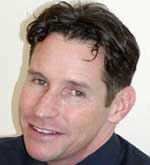-
- California Assembly approves landmark GLBT legislation
- Justice Department bars annual gay event, reverses decision
- ‘Gay Days’ unhampered by homophobes
- First openly gay Episcopalian bishop elected
- ACLU calls Montana higher education policy unconstitutional
- Coalition of Massachusetts clergy supports gay marriage
- Minister who married gay couples deemed blasphemous
- National News Briefs
- World News Briefs
commentary
Reparations for gays and lesbians
Published Thursday, 12-Jun-2003 in issue 807
BEYOND THE BRIEFS
As our gay and lesbian military personnel return from Iraq, they are truly heroic, serving a country that doesn’t yet allow them to live openly without the threat of discharge.
Not only does Britain allow gays and lesbians to serve openly, it has abided by an edict from the European Court of Human Rights and has paid compensation to those it wronged when it discharged them for being gay.
Survivors of the Holocaust, Japanese-Americans interned during WWII and descendants of slaves are seeking reparations and, in many cases, are receiving them.
The German government acknowledged after WWII that the genocide of Jews and gays was wrongful. Germans pay billions to Israel in reparations for the wrongs it committed to the victims of the Holocaust. And Israel may pay reparations to the Palestinians who lost their homes in 1948.
America recognized its duty to re-pay Japanese Americans for interning them in camps during WWII — taking away their property and destroying their businesses in the process.
When one considers that African-American slaves comprised over one-quarter of the folks living in the colonies prior to 1776, it is hard to deny their descendants are entitled to payment for the slave trade.
While nothing compares to slavery and genocide, there should no be question that many gay men and lesbians certainly have rightful claims, too. Governmental entities imprisoned gay men for going to gay bars, kissing in public, and for consensual sodomy. To the extent that anyone in California was charged with sodomy prior to the 1970s (when consensual sodomy was still a criminal act), the State owes those persons for the imprisonment and resulting damage caused by the law.
To the same extent, gay men convicted of lewd conduct or indecency in public because they kissed in public should have those convictions removed and receive damages for the consequences of those wrongful convictions.
Likewise, gay men and lesbians who have suffered job discrimination should also have retroactive claims for reparations. This is because California didn’t recognize such claims until the mid-’90s.
While the notion of granting reparations to GLBTs who have suffered seems unique, it is not. The European Court of Human Rights has done so and now it’s catching on here in the United States, particularly in academia.
While nothing compares to slavery and genocide … many gay men and lesbians certainly have rightful claims, too. Smith College recently recognized the idea of admitting past injustices to gay men when it honored three gay professors it axed 40 years ago.
In the 1960s, Smith dismissed three gay professors who were convicted in 1960 of being in possession of pornography (a picture of a semi-clothed male model, if you can believe it). Of course, the media made it appear that the three were in a “homosexual pornography ring,” when all knew full well that the pictures were no more revealing or erotic than the photos of underwear models in the Sears catalog. The Massachusetts Supreme Court agreed and reversed the convictions a few years later. But the men’s lives were already damaged.
When the men were charged in 1960, Smith College refused to renew the contracts of Edward Spofford and Joel Dorius. Smith made a third teacher, Newton Arvin, who had tenure, retired early. Arvin died the same year his conviction was overturned, 1963.
The plight of the professors got notice when author Barry Werth described the injustice in his book The Scarlet Professor. In response, Smith voted in February to create the Newton Arvin Prize in American Studies, and the Dorius/Spofford Fund for the Study of Civil Liberties and Freedom of Expression, a $100,000 fund that will pay for lectures, research and programs on civil liberties.
The Board admitted no wrongdoing and did not issue a formal apology.
The two surviving professors did not expect anything from Smith College.
An attorney for the ACLU said the action was a “pittance.” Smith College has a very healthy endowment and could certainly pay a share to the men and the estate of Arvin for the action of the past board. The school argued that it couldn’t really do more because it didn’t know exactly what happened 40 years ago.
Of course, Werth’s book provides a good account, and in a community of historians one would assume Smith could put together a good record of what transpired.
Nevertheless, Smith’s action should prompt a review by governments, businesses and educational institutions into past practices that discriminated openly against gay men and lesbians.
While a movement for reparations cannot begin until bias against gays in the military and business is past history for all of us, the idea that some entities, like Smith College, are making amends for past bigotry is a good omen.
|
|
Copyright © 2003-2025 Uptown Publications


